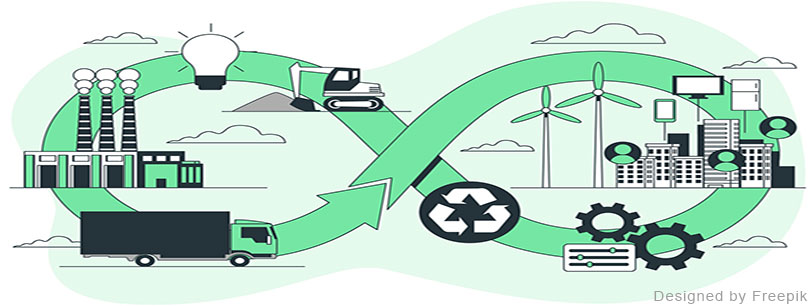Scrap metal recycling is a critical practice that not only benefits the environment by reducing waste but also holds tremendous economic potential. The recycling industry has evolved into a multi-billion dollar sector, and its impact extends far beyond sustainability efforts. In this article we will explore some of the economic advantages of scrap metal recycling and highlight various industries that can significantly benefit from this valuable resource.
Construction and Infrastructure:
The construction industry consumes a considerable amount of metal products, making it a prime beneficiary of scrap metal recycling. Recycling alloys such as steel, copper, and aluminum not only reduces the reliance on virgin materials but also slashes production costs. With the growing emphasis on sustainable building practices, incorporating recycled metal into construction projects demonstrates corporate social responsibility while driving economic viability.
Manufacturing and Automotive:
Manufacturing sectors, including automotive, aerospace, and electronics, heavily rely on metal components. These industries can benefit from access to a steady supply of recycled metal, reducing costs associated with mining, extraction, and refining. Utilizing recycled metal in manufacturing processes not only helps conserve natural resources but also contributes to reducing greenhouse gas emissions, providing a dual environmental-economic advantage.
Energy and Power:
The energy industry, specifically renewable energy, can harness significant benefits from scrap metal recycling. Solar panels, wind turbines, and power transmission systems all require various metal components, which can be efficiently sourced from recycled materials. By integrating recycled metals into their supply chain, the energy sector can achieve sustainability goals while supporting cost-effective operations.
Consumer Goods and Packaging:
From appliances to packaging materials, the consumer goods industry can also tap into the economic benefits of scrap metal recycling. By incorporating recyclable metal into their products, manufacturers can meet growing consumer demands. With the rising awareness of environmental issues among consumers, businesses that prioritize recycling practices gain a competitive advantage, improving both their bottom line and brand reputation.
Technology and Innovation:
Scrap metal recycling stimulates technological advancements and innovations across many industries. Research and development efforts focusing on improving recycling techniques and extracting metals more efficiently. Additionally, the recycling industry plays a vital role in the circular economy, promoting innovation in resource recovery processes and creating jobs in related sectors.
Conclusion:
The economic potential of scrap metal recycling is substantial and reaches far beyond its environmental significance. Industries that rely on metal components can significantly benefit from utilizing recycled materials. The most common industries include: construction, manufacturing, energy, consumer goods, and technology. By embracing scrap metal recycling, businesses can reduce costs, enhance sustainability efforts, and improve their market position. With a global shift towards sustainability, the recycling industry offers a remarkable avenue for economic growth while prioritizing environmental responsibility.

